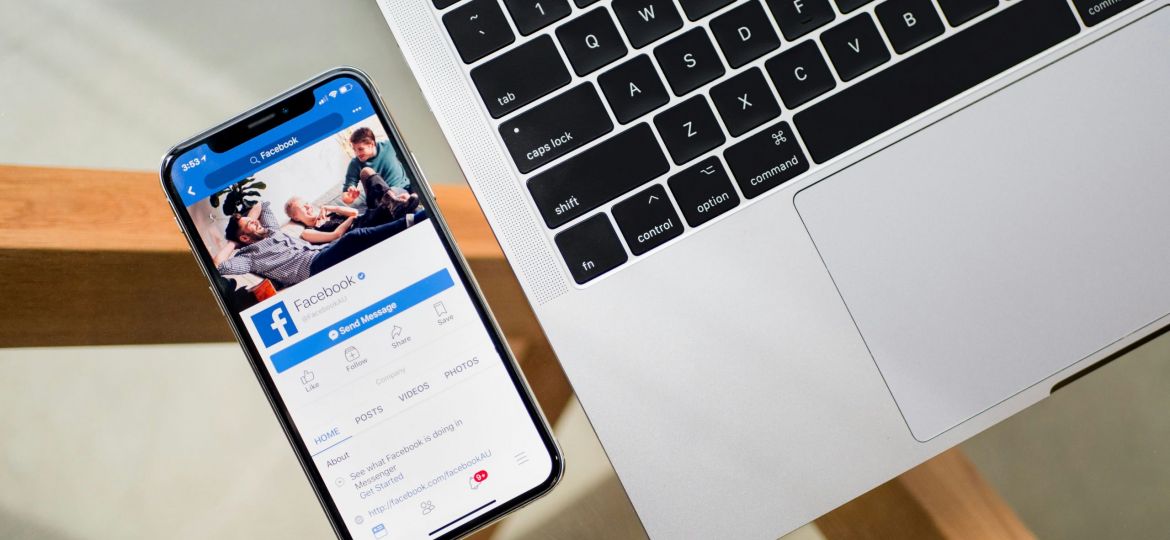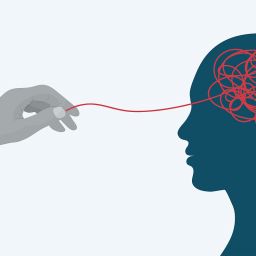
Social Media and Mental Health: How to Set Boundaries for a Healthier Life
Social media and mental health are closely linked, with platforms playing an increasingly significant role in how we feel, think, and interact with the world. For teenagers and adults alike, social media has changed the way we communicate and connect, offering new avenues for self-expression but also presenting challenges to mental health.
The Impact of Social Media on Mental Health
Comparing and Competing
One of the most significant effects of social media on mental health is the constant comparison that many users feel. On platforms like Instagram, Snapchat, and TikTok, people often see curated versions of others’ lives, which can fuel feelings of inadequacy and self-doubt. When teens see peers living “perfect” lives online, it can lead to a distorted self-image and a belief that they don’t measure up. Such comparisons have been shown to elevate anxiety, reduce self-esteem, and contribute to depression.
The Pull of Validation and Approval
Social media operates on algorithms that reward engagement, encouraging users to seek likes, shares, and comments. This pursuit of validation can become addictive, leading to a cycle where users post for approval and then wait for the gratification of likes and positive feedback. Over time, this reliance on external validation can impact mental health by making people more sensitive to criticism or perceived rejection.
The Fear of Missing Out (FOMO)
Social media frequently promotes a “highlight reel” of events, vacations, and experiences, which can induce FOMO. This fear of missing out not only impacts self-worth but also generates anxiety and restlessness. When teens and adults alike worry about not being included, they may constantly check their feeds to see what others are doing, leading to a heightened sense of disconnection from their real lives.
How Common Is Social Media Addiction?
- Global Usage: Social media is widely popular, with 56.8% of the global population actively using social platforms. Addiction rates are expected to continue rising as social media becomes more embedded in daily life.
- Global Addiction Figures: Research from the University of Michigan estimates that 210 million people worldwide struggle with social media and internet addiction.
- US Addiction Statistics: In the United States, California State University reports that approximately 10%, or 33.19 million people, experience social media addiction.
Social Media Addiction Among Youth
- Youth Statistics: Young adults aged 18 to 22 make up a significant portion of social media addicts, accounting for 40% of addicted Americans.
- Screen Time for Teens: Research from Common Sense Media shows that teens spend an average of 7 hours and 22 minutes on screens daily, while children aged 8 to 12 spend about 4 hours and 44 minutes.
Harmful Effects of Social Media Addiction on Youth
- Feelings of Exclusion: Data from Statista shows that 70% of teens aged 13 to 17 feel left out or excluded because of social media.
- Self-Esteem Issues: About 43% of teens have deleted posts due to low engagement, and 43% report feeling bad about themselves if their posts receive few likes or comments.
- Cyberbullying: Approximately 35% of teens have experienced cyberbullying on social media platforms.
- Self-Harm and Suicide Risk: Research from San Diego State University indicates that 70% of teens who use social media for more than 5 hours daily are at a higher risk of experiencing suicidal thoughts.
Social Media Addiction by Platform
According to the Pew Research Center, daily usage rates of the top social media platforms among US adults are as follows:
- Facebook: 70%
- Snapchat: 59%
- Instagram: 59%
- Twitter: 46%
- YouTube: 54%
Navigating Social Media Addiction: Signs and Strategies for Teens and Parents
Recognizing signs of social media addiction is the first step toward addressing its effects. Here are common signs that may indicate a teen is struggling with social media addiction:
- Excessive Screen Time: Spending more time on social media than with friends or family in real life can indicate addiction. Excessive screen time can interfere with daily responsibilities, such as school and sleep.
- Withdrawal Symptoms: Teens addicted to social media may exhibit withdrawal symptoms when they can’t access their accounts, including irritability, restlessness, and anxiety.
- Neglect of Responsibilities: A decline in school performance or neglect of household responsibilities may suggest that social media is taking priority over essential tasks.
- Obsessive Behavior: Constantly checking notifications, refreshing feeds, or feeling a compulsive need to be online are common indicators of social media addiction.
Setting Boundaries for a Healthier Life
Creating boundaries with social media can protect mental health and promote a balanced, positive relationship with these platforms. Here are several actionable ways to maintain boundaries and use social media mindfully:
- Set Screen Time Limits: Monitoring screen time can prevent hours from slipping away on social media. Set daily or weekly limits on app usage to reduce unnecessary scrolling and refocus on other fulfilling activities.
- Curate Your Feed: Follow accounts that make you feel good, educate you, or inspire you. Unfollow any accounts that consistently trigger negative emotions, and consider using filters or apps that let you mute keywords or content that negatively affects your mental health.
- Schedule “Detox” Days: Taking regular breaks from social media is one of the best ways to prevent burnout. Designate one day a week or one weekend a month to disconnect and engage in offline activities that nurture your well-being.
- Practice Mindful Scrolling: Mindful scrolling involves paying attention to how certain posts make you feel. If you notice rising stress, anxiety, or sadness while on social media, pause and consider logging off or shifting to a different activity that uplifts you.
- Limit Social Media Before Bed: Using social media right before sleep can interfere with rest and increase anxiety. Try to avoid screens for at least an hour before bedtime to help your mind wind down and promote better sleep.
Integrative Psychiatry and Social Media’s Role in Mental Health
For those struggling with the emotional effects of social media, integrative psychiatry offers a comprehensive approach that addresses the mind, body, and spirit. Integrative psychiatry combines conventional methods with holistic therapies to treat mental health challenges by looking at their underlying causes and building overall wellness.
What Is Integrative Psychiatry?
Integrative psychiatry is a new paradigm of healing that synthesizes traditional medical approaches with a focus on mental, physical, and emotional wellness. At the Center for Integrated Health, the whole-systems healing model supports mental health by addressing physical, mental, emotional, and spiritual aspects, including:
- Pharmaceutical-Grade Natural Supplementation: Tailored supplements provide the body with essential nutrients to enhance brain function, reduce anxiety, and promote calm.
- Detoxification: Detox protocols target and eliminate harmful toxins from the body, contributing to better mood regulation and increased energy levels.
- Balancing Adrenal, Thyroid, and GI Health: The gut-brain connection is essential for mental health, and balancing these areas helps stabilize mood and mental clarity.
Integrative psychiatry empowers people to manage social media-related stress by creating a foundation of balance and resilience that makes them less susceptible to external triggers.
The Role of Micronutrients in Mental Wellness
The effects of social media on mental health can also be influenced by the body’s overall nutritional status. Many individuals, even with a healthy diet, experience nutrient deficiencies due to factors like soil depletion. For example, deficiencies in B vitamins, iodine, and zinc can significantly affect mood and increase anxiety. Micronutrient supplementation is used in integrative psychiatry to support optimal brain function and improve resilience to stress, making it a valuable tool in navigating the pressures of social media.
Recognizing When to Seek Support
Social media and mental health are intricately linked, and while boundaries and self-care can help, some individuals may find that their emotional responses to social media warrant professional support. Signs that it may be time to seek help include:
- Constant feelings of inadequacy or low self-esteem.
- Excessive anxiety related to online interactions or online harassment.
- Difficulty concentrating due to time spent on social media.
- Significant sleep disruptions from nighttime screen use.
Integrative psychiatry allows individuals to explore a personalized treatment plan that could include both medication and holistic therapies to address these concerns from multiple angles, fostering a balanced approach to mental health.
Conclusion
Social media and mental health are connected in ways that affect teens and adults alike. While social media offers opportunities for connection and information-sharing, it also has the potential to impact self-esteem, increase anxiety, and exacerbate FOMO. Setting boundaries, practicing mindful scrolling, and using digital detoxes are powerful ways to counter these negative effects and create a healthier online experience.
When challenges persist, integrative psychiatry provides an effective solution, blending conventional and holistic approaches to address the mind, body, and spirit. By creating a strong foundation of mental and emotional well-being, individuals are better equipped to handle social media pressures and enjoy a balanced, fulfilling life.
Take the Next Step Toward Digital Balance and Well-Being
If social media is affecting your mental health, the Center for Integrated Health offers a personalized approach that can help. Our integrative psychiatry model combines holistic therapies, natural supplementation, and whole-system healing to support a balanced, resilient mind. Connect with us today to learn how we can guide you toward mental clarity and overall wellness in a digital world.




